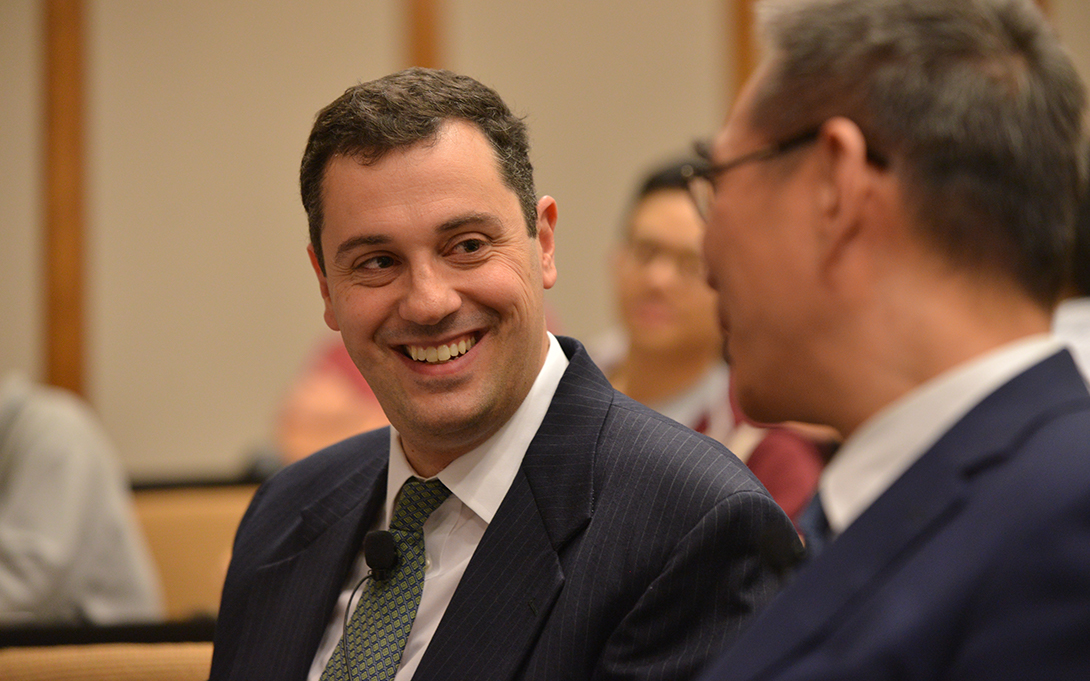
Written by Mandira Banerjee, Michigan News
John Ciorciari is professor of public policy and director of the International Policy Center at the Ford School of Public Policy. His research focuses on Southeast Asia and foreign policy strategies, human rights and the reform of international economic institutions.
Q: With mixed signals in the last few weeks, what is the best way to think about the upcoming U.S.-North Korea summit and its likely outcome?
Ciorciari: The lead-up to the summit bears the hallmarks of Trump’s approach to making deals. He began with a bellicose approach to North Korea before opening the door to diplomacy, and his administration has managed to garner support for a tight sanctions regime that appears to be causing real pain in Pyongyang. He thus arrives with some leverage and the benefits of unpredictability.
His recent threats to cancel the talks fit the same negotiating model, though his inconsistency toward North Korea often looks more impulsive than strategic. The larger problem is that neither Trump nor his rotating cast of foreign policy advisers has given reason to expect that he will arrive with a well-defined set of near-term goals and a strategy for achieving them.
The opacity of the North Korean regime also makes it extremely difficult to discern what Kim aims to achieve and how he is likely to play his hand. At a minimum, Kim surely sees the summit as an avenue to achieve relaxation of sanctions and diminution of an American military threat. He may also hold out hope that Trump will concede much more than his predecessors, whether due to impulse, poor preparation or desire for acclaim.
The most likely outcome will be a high-level statement of shared objectives, such as denuclearization and an eventual peace deal—without spelling out how each side interprets those aims. Each leader may offer modest concessions. Kim may see little to lose from a continued pause in nuclear testing, believing he has already achieved a sufficient deterrent.
Trump may respond with a pledge to review sanctions. Unless the summit ends in a row, both leaders will likely claim historical success. Yet the real work will remain for lower-level officials in the months and years ahead.
The prospects for progress remain dim. The pressure on North Korea will ebb if sanctions loosen and Trump’s attention turns elsewhere. U.S. ability to lead effective follow-on negotiations is also highly suspect with so few experienced hands on deck and no evident plan for engaging other regional players systematically. The summit is a historic opportunity, but the most likely outcome is that the parties will slide back into the gridlock that has plagued negotiations over North Korea for decades.
Q. What impact will the June 12 summit have on regional partners?
Ciorciari: The South Korean government has been keen to engage North Korea and is deeply concerned about Trump’s erratic and sometimes belligerent approach to North Korea. If the summit goes well enough to yield a statement of shared goals, South Korean officials will be glad to welcome space for dialogue and see the talks to revert to a process of lower-level diplomacy.
The same may be true in Japan, though Trump’s decision to hold a summit without consulting his Japanese allies in advance was a slap in the face of Prime Minister Shinzo Abe. If the summit leads to sanctions relief and a new round of unpromising diplomacy, many Japanese observers will likely regard it as a failure.
China stands to benefit from the talks, since a reasonably productive summit exchange between Trump and Kim would provide a rationale for easing sanctions. As North Korea’s dominant external partner, China has an interest in maintaining strong trade and investment links to North Korea and reaping the influence that comes with it.
An acrimonious summit could drive Kim back toward a closer embrace of Beijing, but Chinese officials likely prefer to see their difficult neighbor pledge to take steps toward denuclearization and to take steps to reduce the risk of war on the Korean Peninsula—which for China would exact a heavy cost.